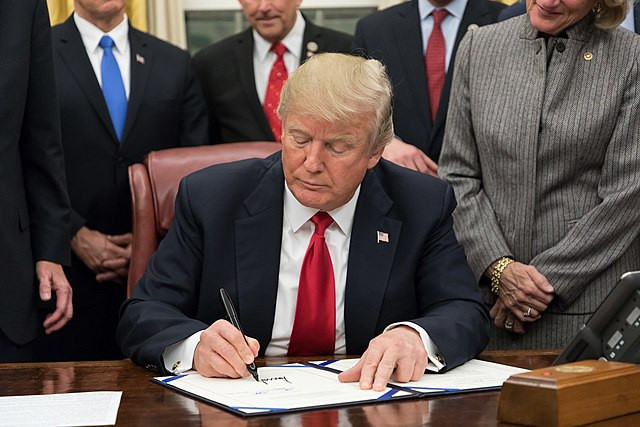President Donald Trump signed a sweeping executive order Monday aimed at slashing U.S. drug prices by aligning them with those paid in other developed nations, declaring that the United States "will no longer tolerate profiteering and price gouging from Big Pharma." The move, which revives an effort blocked by the courts during Trump's first term, sets the stage for a confrontation with pharmaceutical companies, middlemen, and potentially even foreign allies.
"The principle is simple - whatever the lowest price paid for a drug in other developed countries, that is the price that Americans will pay," Trump said in a press conference at the White House. "Some prescription drug and pharmaceutical prices will be reduced almost immediately by 50 to 80 to 90%."
The order instructs the Secretary of Health and Human Services to "establish a mechanism through which American patients can buy their drugs directly from manufacturers who sell to Americans at a 'Most-Favored-Nation' price." If manufacturers refuse to comply, the agency is directed to impose price rules and consider other "aggressive measures" to reduce costs and end "anticompetitive practices."
Robert F. Kennedy Jr., Health and Human Services Secretary, called the order a breakthrough. "I never thought that this would happen in my lifetime," he said. "I have a couple of kids who are Democrats, are big Bernie Sanders fans. And when I told them that this was going to happen, they had tears in their eyes."
The executive order also empowers the U.S. Trade Representative and Secretary of Commerce to counter what the White House described as "foreign undercutting of market prices," and instructs the Federal Trade Commission to consider antitrust enforcement in the drug sector. "We're all familiar with some of the places where pharmaceutical companies push the limits to prevent competition," a White House official said.
Industry groups and Wall Street analysts were quick to respond. Stephen Ubl, president of the Pharmaceutical Research and Manufacturers of America, said the executive order was "a bad deal for American patients." Ubl warned it "will jeopardize the hundreds of billions our member companies are planning to invest in America, making us more reliant on China for innovative medicines."
"Importing foreign prices from socialist countries would be a bad deal for American patients and worker," Ubl added. "We are the only country in the world that lets PBMs, insurers and hospitals take 50% of every dollar spent on medicines."
Despite the confrontational tone, pharmaceutical stocks surged. Merck shares rose 5.2%, Pfizer gained 3.2%, Gilead Sciences climbed 6.7%, and Eli Lilly added 2.4%. Investors appeared to shrug off implementation risks and legal uncertainty.
Analysts pointed to the order's aggressive timeline and structural challenges. "Implementing something like this is pretty challenging. He tried to do this before and it was stopped by the courts," said Evan Seigerman, analyst at BMO Capital Markets. Lobbyists had expected a more limited policy, focused on select Medicare drugs.
The White House indicated that drugmakers will be given 30 days to meet price targets, and six months to make "significant progress." If targets are not met, the administration could authorize rulemaking or allow direct importation of medicines from abroad.
Trump said the order was partly inspired by a friend who purchased a weight-loss drug for $88 in London, while it cost $1,300 in the U.S. "Everybody should equalize. Everybody should pay the same price," he said.
The president added that the U.S., while comprising just 4% of the world's population, accounts for more than two-thirds of pharmaceutical company profits. "That's not a good thing," he said. "For no reason whatsoever, they had to be borne by America alone. Not anymore, they don't."






